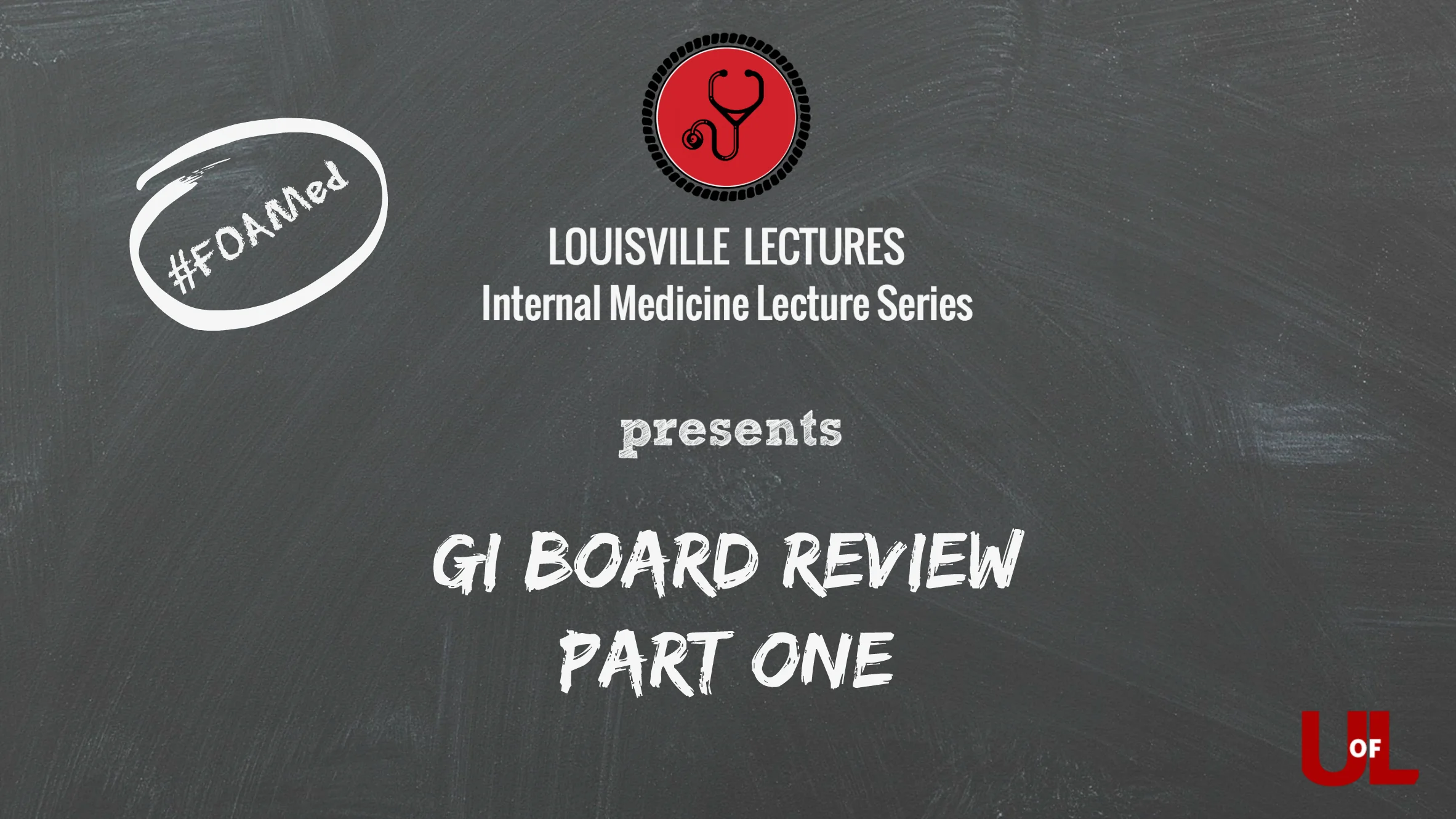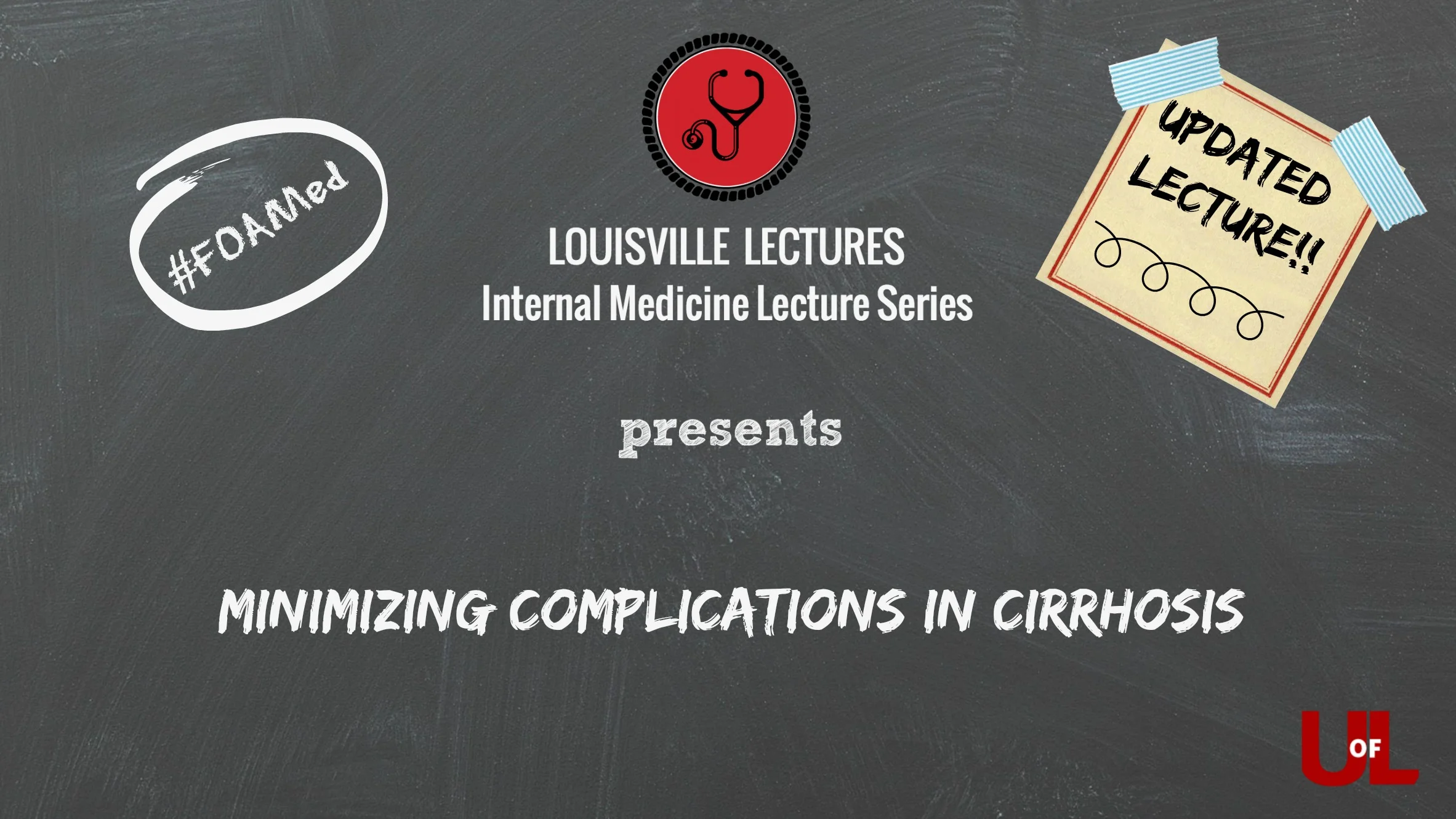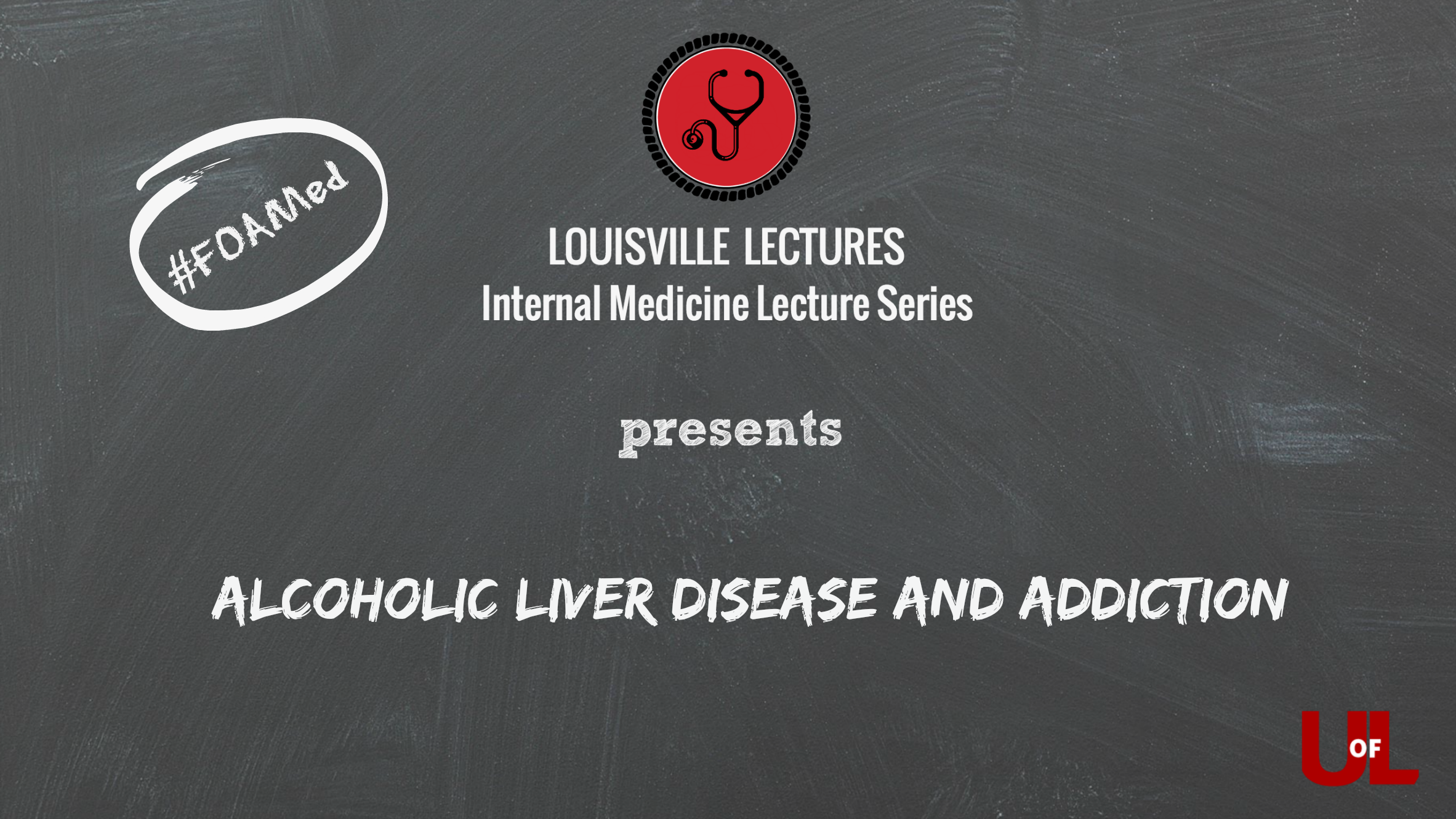gastroenterology & hepatology
Dr. Ben Rogers presents a lecture on reflux by discussing a classic presentation of reflux as well as testing. Dr. Rogers emphasizes modifying care and diagnosis towards each patient with their own unique symptoms.
Dr. Omer delivers part two of a GI Board Review. This talk includes various cases as well as questions and answers. Check out part one from last week!
Dr. Omer delivers part one of a GI Board Review. This talk includes various cases as well as questions and answers.
Stay tuned for Part Two next week.
Dr. Craig McClain presents "Management of Alcohol-Related Hepatitis" through various case studies, as well as an overview and diagnosis. He then discusses research findings related to alcoholic hepatitis and after, Dr. McClain explains the therapies being validated for the treatment of AH, their complications, as well as transplantation.
Dr. Anupama Raghuram discusses "Hepatitis A: An Update in the Context of an Outgoing Multi-state Outbreak" by first reviewing the epidemiology and pathogenesis of hepatits A virus (HAV) infections. She then presents the clinical manifestations and management of HAV infections. After, Dr. Raghuram addresses strategies for prevention of transmission in a variety of clinical settings and finally, reviews data on the ongoing multi-state HAV outbreak in the US.
In this presentation Dr. Craig McClain discusses nonalcoholic fatty liver disease as the #1 cause of liver disease. He then presents various cases and current treatment for patients with NASH as life style modifications, vitamin E, HCC monitoring, and more.
In this presentation, Dr. Michael Wellner discusses Hepatitis by first identifying patients with alcoholic hepatitis who are at high risk for poor outcomes. He then recognizes the different viral hepatitides as well as when and whom should receive treatment. After, he describes autoimmune hepatitis and finally, recognizes acute liver failure and which patients need urgent or emergent GI evaluation.
Dr. Luis S. Marsano presents Variceal Hemorrhage by discussing classification, management, history, and treatment of variceal bleeding. He then discusses the effects of antibiotics as well as rescue treatments and different forms of drug therapy.
Dr. Luis S. Marsano presents Upper Gastrointestinal Hemorrhage by first discussing acute upper non-variceal bleeding. He then explains the signs and causes of GI bleeding as well as initial management. After, he talks about different endoscopies, medical therapy, and indications for surgery.
Dr. Luis Marsano delves into providing adequate nutrition for patients with cirrhosis to prevent hepatic encephalopathy and alcoholic hepatitis. He also addresses minimizing morbidity; including preventing refractory ascites and hepatorenal syndrome and spontaneous bacterial peritonitis prevention.
In this lecture, Dr. Craig McClain discusses the pathogenesis of alcoholic liver disease, treatment, and patient cases. Dr. McClain uses his expertise in nutrition to discuss risk factors and advanced pathophysiology that predispose patients to excess harm from alcohol. He closes with a focus on where the research on treatment is and what the most recent evidence tells us about how we might improve clinical management.
Rebecca Redman presents an approach to GI cancers from the perspective of an internist. She covers workup of gastrointestinal cancers, the differences between curative and palliative treatment, and types of treatment. She spends a great deal of time on colorectal cancer then discusses esophageal and gastric cancers, hepatocellular carcinoma, pancreatic cancer and GI neuroendocrine tumors.
Dr. Russ Farmer uses MS Paint to cover basic concepts of colon cancer including epidemiology and clinical decision making (chemo and surgery options). He cements the topics by emphasizing visual points.
Dr. Brian Beauerle covers the basics of cirrhosis including pathophysiology, symptoms and survival of patients with survival. He covers when and how to perform a paracentesis including interpretation of results. He discusses pharmacologic and dietary treatment of ascites and refractory ascites. He closes with complications of ascites including spontaneous bacterial peritonitis and hepatic hydrothorax.
Dr. Kris Krueger reviews the epidemiology and pathogenesis of C.difficile in the U.S. Then, she gives an update on current medical treatments including antibiotic, probiotic and surgical treatment before covering the evidence behind fecal microbial transplant. She also addresses prevention strategies and emerging C.difficile therapies such as immunotherapy and vaccines.
Dr. Mike Hughes discusses innovative medical care of chronic pancreatitis with ground-breaking work on auto-islet cell transplantation. He covers differences in auto vs. allo transplantation, indications of transplantation, evaluation of prospective transplant patients, peri-operative and outpatient management, and observed outcomes post-surgery. The lecture spends time reviewing several ongoing research projects at University of Louisville by several labs researching facets of this topic.
Dr. Luis Marsano delves into providing adequate nutrition for patients with cirrhosis to prevent hepatic encephalopathy and alcoholic hepatitis. He also addresses ascites and hepatorenal syndrome management as well as SBP prevention and GI bleeding.
Dr. Bryan Moffett outlines a practical algorithm to considering both acute diarrhea. He then approaches treatment for acute and chronic diarrhea. Finally, he cements this knowledge by presenting several cases.
Dr. Roberts addresses one of the age-old discussions between medicine and surgery: what to do with an inflamed pancreas? He does a brief review of presentation, etiology, severity assessment, complications of pancreatitis and then spends a good deal of time on endoscopic and surgical treatments for pancreatitis and it's complications.
Dr. Russell Farmer covers the acute abdomen for internists (from a surgeon's perspective). He reviews history and physical findings tailored to an acute abdomen and works through cases to discuss the following: diverticulitis, appendicitis, pancreatitis, peptic ulcer disease, bowel obstruction, cholecystitis, ovarian torsion, testicular torsion.
Dr. Dipendra Parajuli uses a case-based approach to review diagnosis, need for imaging, severity scoring systems, management and complications of acute pancreatitis.
Dr. Marsano discusses evidence regarding diagnosis and management of fulminant hepatic failure. Dr. Marsano is a professor of medicine at the University of Louisville and holds a Distinguished Chair in Hepatology in the department of Gastroenterology and Hepatology.























Dr. Bryan Moffett presents "Sodium Derangements in the Medical Patient" by first differentiating the difference between total body sodium and sodium concentration. The then breaks down the physiology, causes, and treatment of hyponatremia.